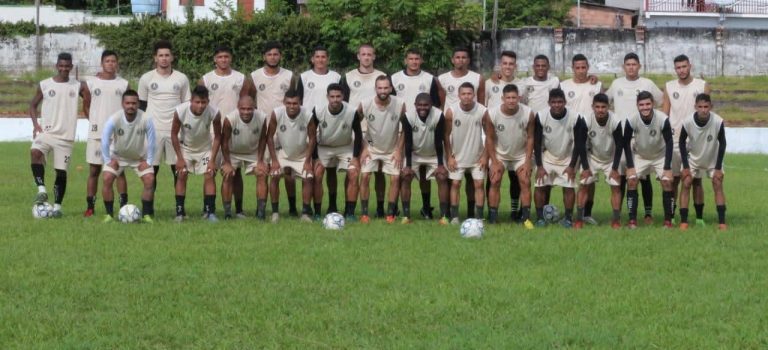Hardline Islamist groups depend on a charity box scam to pay for operations across Indonesia, which has suffered a series of hotel bombings and other attacks over the years
Generous Indonesians donating their spare change to the poor and needy are unwittingly helping finance deadly terror attacks and jihadist training camps, in a scam that has netted big money for extremist groups.
Former radical Khairul Ghazali once spent his days visiting restaurants, convenience stores and supermarkets to drop off charity boxes, wearing an official-looking uniform to avoid suspicion.
Passers-by would slot in coins and crumpled banknotes in the belief that they were helping the impoverished, orphaned children or maybe a Palestinian aid organisation.
But Ghazali’s boxes secretly belonged to Jemaah Islamiyah (JI) — the notorious network behind Indonesia’s deadliest terror attack, the 2002 Bali nightclub bombings.
“People can’t tell the difference between these and other charity boxes,” said Ghazali, 56, who now runs an Islamic boarding school and tries to de-radicalise former extremists.
“The money collected is usually used to pay for terrorism.”
With little outside funding, hardline Islamist groups depend on the charity box scam to pay for operations across Indonesia, the world’s biggest Muslim-majority nation, which has suffered a series of hotel bombings and other attacks over the years.
A militant arrested last year told police that one foundation linked to JI, sboagen which masterminded the 2002 Bali bombings, was running more than 20,000 illicit charity boxes nationwide
North Sumatra police said in March they had seized more than 500 boxes suspected to be funding pipelines for the Islamic State group and radicals linked to Al-Qaeda.
The seizure, weeks before an IS-inspired married couple blew themselves up at a church on Good Friday, was the tip of the iceberg.
A JI militant arrested last year admitted that one foundation linked to the notorious terror group was running more than 20,000 boxes nationwide, police said at the time.
– ‘Massive scale’-
There are no official figures on the number of illicit charity boxes around Indonesia, but experts believe they are in every city and region across the sprawling Southeast Asian archipelago.
“This is not new but the scale of it, which is now massive, is something new,” said Jakarta-based security analyst Sidney Jones.
Most Indonesian terror groups now rely “overwhelmingly” on domestic funding to pay for day-to-day operations, she said.
Terror groups have also raised cash from member and sympathiser donations, online fundraising and laundering money through legitimate businesses, such as Indonesia’s many palm oil plantations.
“But the attacks that have happened after the Bali Bombing have been mainly funded through charity box funds,” Ghazali said.
Funds from the scam have been traced to jihadist training camps in ultra-conservative Aceh province and the East Indonesia Mujahideen, a radical group blamed for beheading four Christian farmers on the island of Sulawesi last month.
They are also used to help families of radicals jailed or killed by Indonesia’s counter-terror squad, and police suspect they have been used to pay for jihadist trips to Syria.
It has proved a dependable way for extremists to raise funds under the radar with one box raising about $350 every six months or so, Ghazali said.
“It is more convenient and risk-free,” he added.
“There’s no chance of bloodshed like in a robbery.”
Ghazali spent five years in prison for masterminding a 2010 bank heist — once a staple funding source for extremist groups — that left a security guard dead.
It was around this time that terror groups began turning their back on robbery and other risky crimes in favour of more covert fundraising methods.
– ‘Dangerous habit’ –
Illicit boxes are usually linked to foundations backed by extremist groups, or their sympathisers — and registered with authorities to appear legitimate.
They’re required to report income and some revenue usually does go to charitable causes.
But that is after money is siphoned off to fund extremist operations.
“So, there are actually orphans or poor people being taken care of through these boxes, but it’s a cover up,” University of Indonesia terrorism expert Ridlwan Habib told AFP.
The cash nature of donations makes it tough for authorities to root out shady organisations.
“That’s how they can survive for years by raising money this way without being noticed,” Ghazali said.
And the scheme’s success means that extremists are likely to keep manipulating the goodwill of Indonesians, who are among the world’s most generous in terms of charitable giving.
“Indonesians like to donate money and they’ll give away 2,000 or 5,000 rupiah (15 to 35 cents) without thinking twice,” said Sofyan Tsauri, a former militant familiar with the scheme.
“But it can be a dangerous habit because you don’t know how the money is being used.”
Some in North Sumatra were shocked when police revealed the scam had been operating in the province this year.
“My intention is only to help others when I donate money,” said Medan resident Sri Mulyani.
“I never thought it would be used for terrorism.”

 Sept 27 (Reuters) – Kazakhstan will try again to make a MotoGP debut in 2024, after not being ready this year, on a record 22
Sept 27 (Reuters) – Kazakhstan will try again to make a MotoGP debut in 2024, after not being ready this year, on a record 22